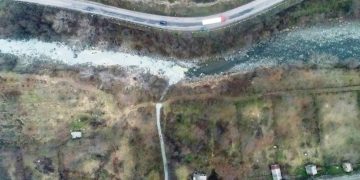In December 2016, it became known that 4 SNCOs under the Ministry of Nature Protection will merge and reorganize into “Environmental Monitoring and Information Center” SNCO, as a result of which the number of the staff will reduce. The 20 million AMD saved from this reduction is envisaged to be spent for improvement of working and technical conditions of the newly-established SNCO (acquiring computer equipment, improvement of working space).
The savings made by the Government are certainly welcome but this new SNCO has created serious corruption risks in the Ministry of Nature Protection.
In particular, the types of business activities allowed to the Environmental Monitoring and Information Center” SNCO include preparation of studies in the hydrogeological-reconnaissance and investigation fields and mining programs.
According to the RA Law on Environmental Impact Assessment and Expertise, the application submitted for expertise should contain the draft of the document on possible environmental impact (policy, strategy, concept, outline, natural resources application scheme, program, plan, urban development project document). In its turn, the expertise of this draft document is carried out by another agency of the Ministry of Nature Protection, “Environmental Impact Assessment Expertise Center” SNCO.
Hence, it results that the entity that prepares the draft and the one that carries out the expertise are SNCOs that both belong to the RA Ministry of Nature Protection. Thus, there are considerable corruption risks here since the “Environmental Impact Assessment Expertise Center” SNCO may give negative expert opinion on the draft that was not prepared by “Environmental Monitoring and Information Center” SNCO. Thus, this new SNCO will gain a monopoly in preparation of studies in the hydrogeological-reconnaissance and investigation fields and mining programs.
Thus, although this merged SNCO “saves” 20 million AMD from the state budget, it can become a big corruption-related problem for business entities.

 FACTOMETER
FACTOMETER









